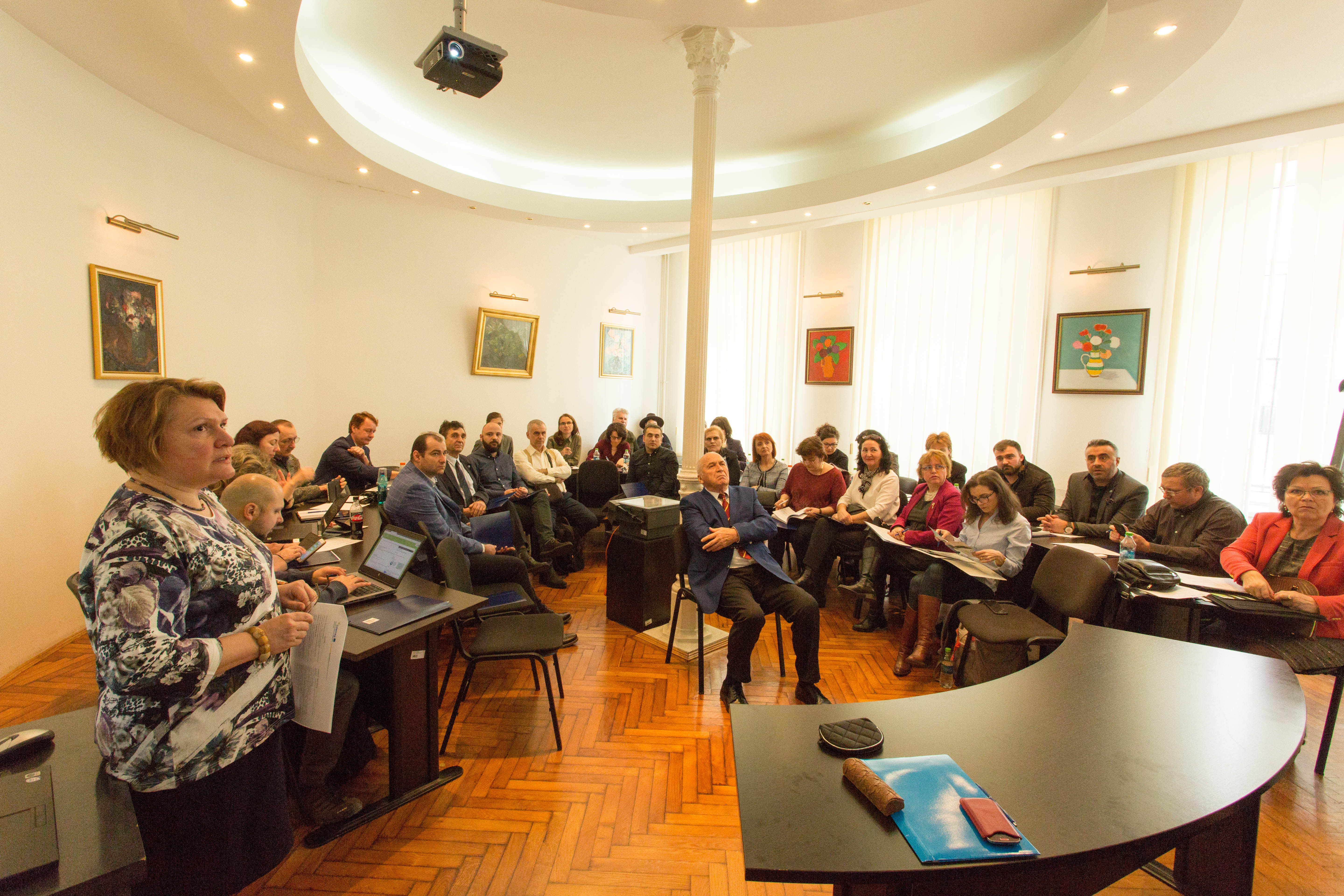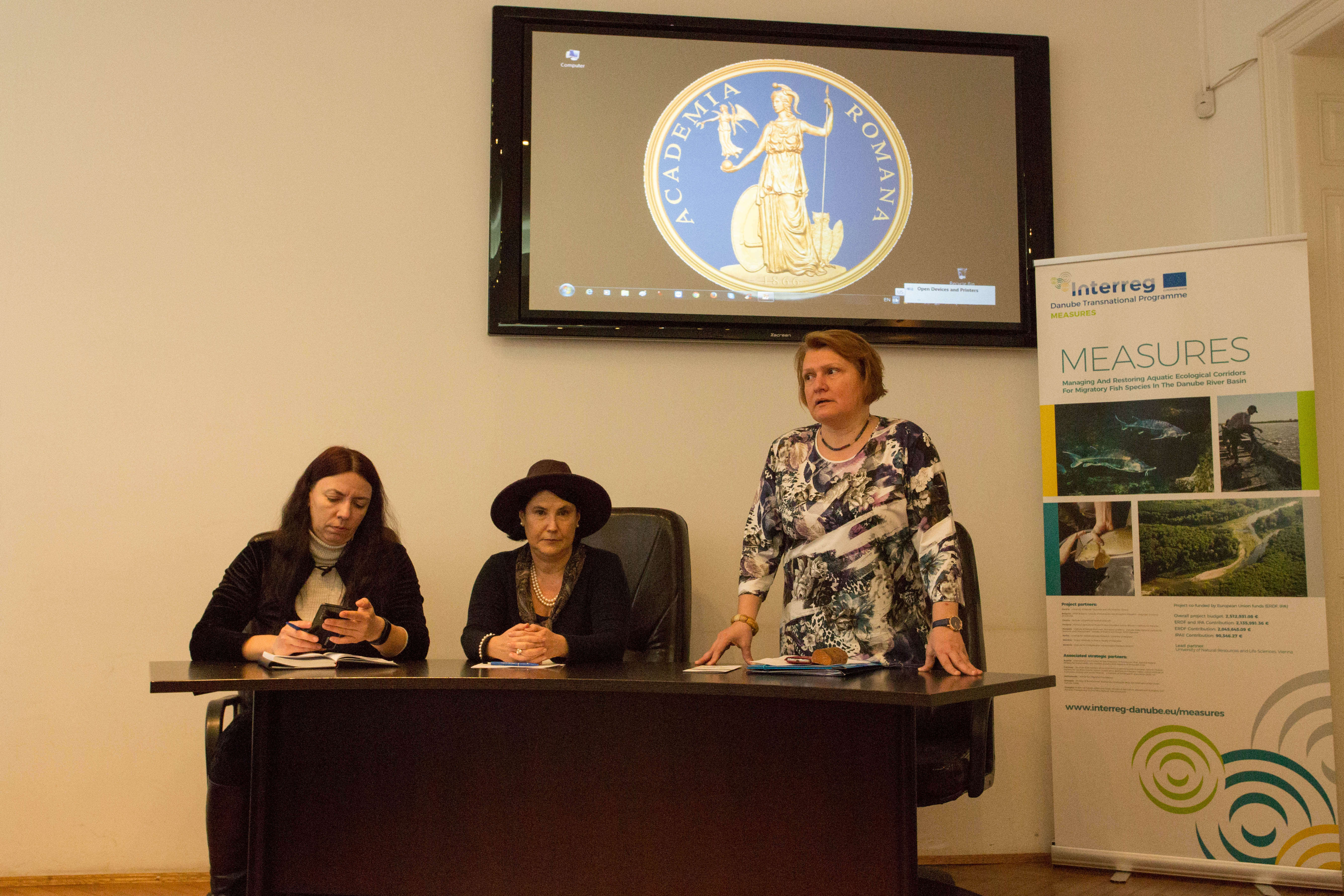MEASURES - National stakeholders from Romania met for the first National Workshop
11-03-2019
The end of February was welcomed by the Romanian project team within the Romanian Academy, where representatives of stakeholders interested in the Danube sturgeon topic gathered for the first national workshop project. The purpose of the event was to lay the foundations for a national network of stakeholders to conserve sturgeons in the Danube.

Representatives of the Romanian Academy, the Ministry of Environment, the Ministry of Waters and Forests, the Romanian Waters, the Institute of Biology, the Danube Delta National Research and Development Institute and WWF-Romania have each emphasized the need to protect this pennant Danube species, the sturgeon, and its importance for the health of the ecosystems in which it lives. The threats were listed and it was emphasized yet again that the ban on fishing alone is not enough to ensure the conservation of sturgeons in the Danube.

The second part of the day was reserved for work in three groups according to the stakeholders. The first group was that of researchers and academics. They have touched problems such as nomenclature, fish stock estimation methods, like nature conservation report and economic development in reality, and how this category of specialists can work better with the legislator. The essence of the discussions was that it is a place for improvement, and above all a large number of participants believe that sturgeons need to have their own law that clearly identifies how it should be managed.
The second group brought together representatives of environmental protection institutions. They discussed the role they have in preserving the sturgeon, but also the aspect of legislative control. The essence of the discussions was related to the need for the inclusion of sturgeon on Annex 2 of the Habitats Directive. Discussions about poaching and poaching cases, as well as the need to rebuild the Danube month, were also touched.
And the discussions of the third group were about the idea of nature protection vs. compensation for the economic exploitation of natural resources. There was much talk about the available data and access to it, the explosion of tourism in the delta, and the fact that, beyond the threats we already knew, the tourist's demand for sturgeon begins to grow higher as well. Also, the pollutions and changes made by the treatment plants regarding the sturgeon habitat have also been listed.
We are glad that we have had a great diversity of participants with us, along with new representatives from most of the institutions and the main sectors of interest for the conservation of sturgeons in the Danube. We look forward to the results of the other workshops that will take place in the next weeks in the other countries of the project.
